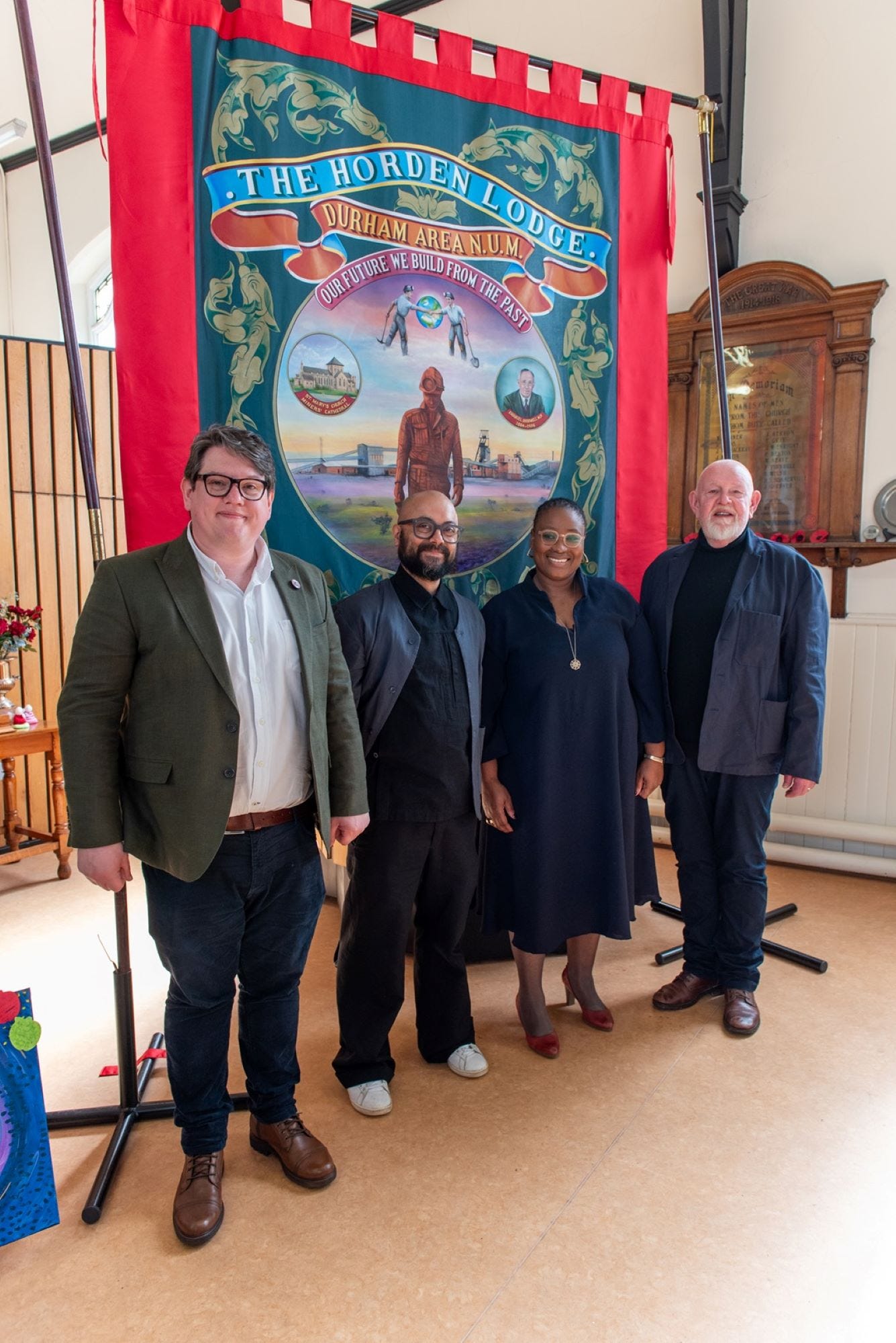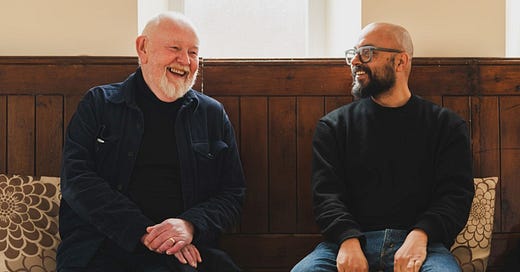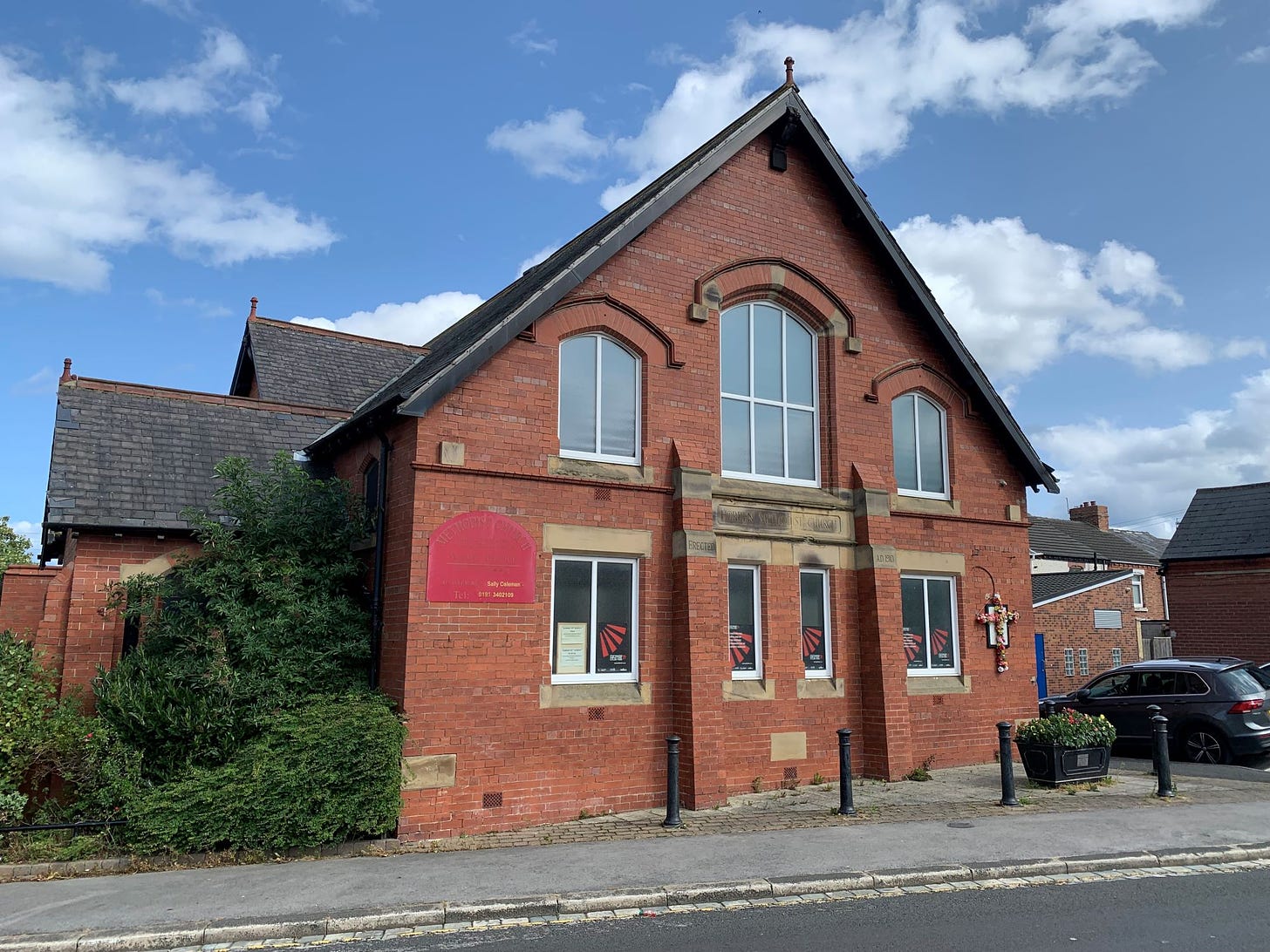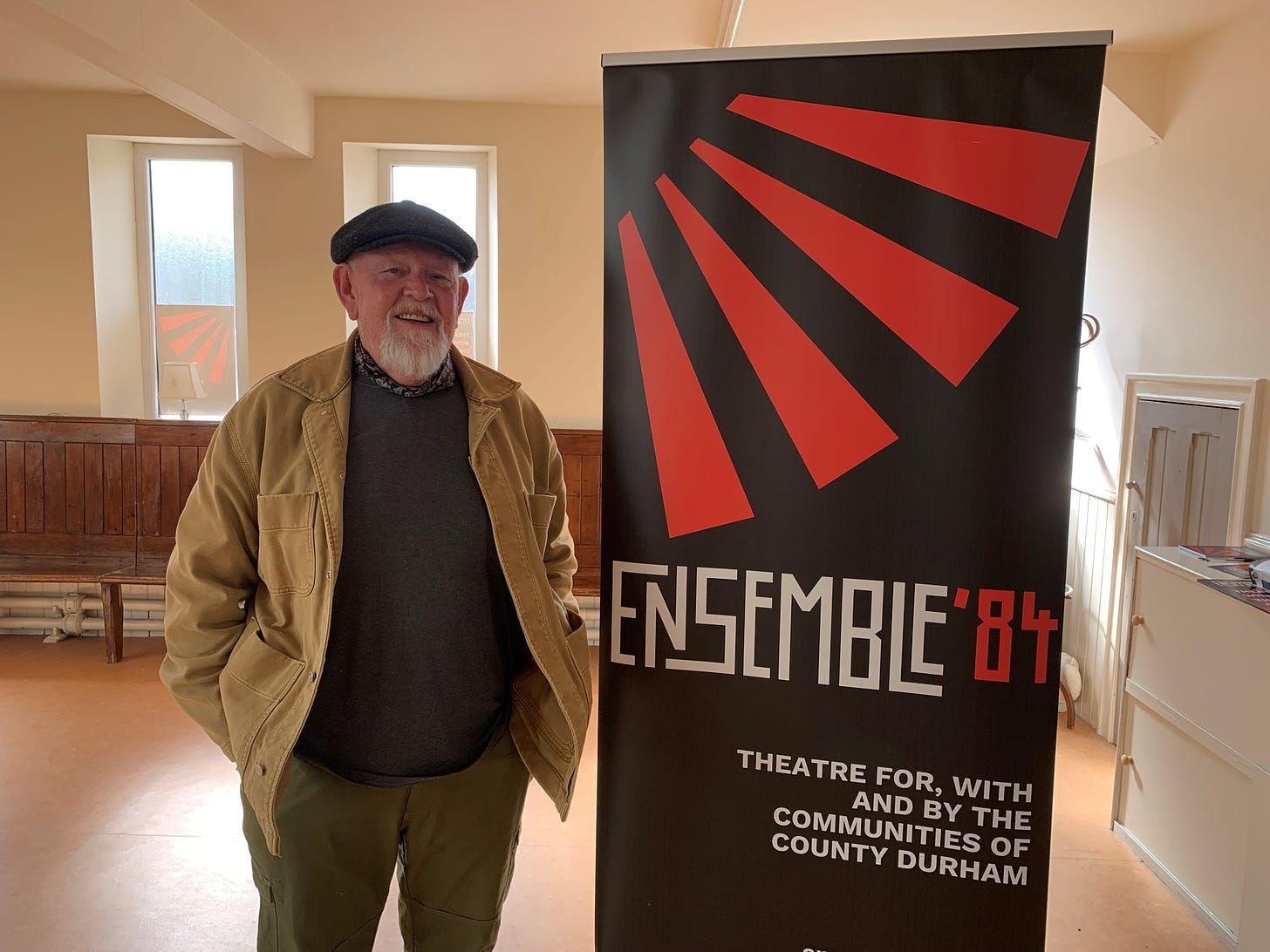
Curtain comes up on Ensemble '84
A plan has been hatched to put Horden’s name in lights and its people on the stage. David Whetstone meets the man behind Ensemble ‘84
Something exciting is brewing in Horden, the former pit village near Peterlee, where posters in the windows of the old Methodist church proclaim the name Ensemble ’84.
Whatever can it be?
On the first of three open days, Mark Dornford-May is making himself available to the curious who come in a trickle, each to be offered tea and cake as they await their one-to-one audience.
Mark is a theatre director and educator with an impressive CV. His 21st Century successes have been with the company he founded 25 years ago in South Africa, Isango Ensemble.
His ambition for sister company Ensemble ’84, based in this airy, red-brick building, is “a theatre company for County Durham which has a national and international reputation”.
The location might seem incongruous. Horden has a history steeped in coal mining – the pit closed in 1987 – but theatre? Not so much, although we are, of course, in Billy Elliot territory here.
“There was a bit of damp but that’s been sorted and the building is in pretty good nick. It’s got a good kitchen and big meeting room at the back. It’s got a disabled loo… everything you need really.”
Mark Dornford-May
Mark says both Lee Hall, who wrote the film and stage musical, and the director, Stephen Daldry, are supporters of Isango Ensemble and hence of Ensemble ’84.
Mark, who was born in Yorkshire but spent most of his formative years in Cheshire, says he was running a London theatre when he was approached by a South African philanthropist.
Previously he had run the acting course at the Central School of Speech and Drama and taught at RADA (Royal Academy of Dramatic Art).
What the philanthropist was proposing was a theatre training programme for young South Africans who hadn’t had such opportunities under apartheid.
“I went out for a limited period of several months and what we did initially was a very intensive training programme," he tells me.
“Then we started to produce work and two productions, The Mysteries and Carmen, the opera, both transferred back to London.
“The Mysteries went into the West End and Carmen hit all the major festivals in the world – literally. It went everywhere. This would have been in 2001-2.
“The story since then has been of an extraordinary trajectory in the sense that we’re working with people who’ve emerged from some of the most deprived areas of the world.
“Yet the LA Times called Isango one of the greatest lyric theatre companies in the world.
“We’ve won Olivier Awards, created three feature films which have played at Sundance, Cannes and Berlin and gone on to distribution.
“We’ve played the West End, we’ve played Broadway; we’ve performed on every continent and the company continues to do so.”
Could the same soaring success await the company Mark is establishing in County Durham?
He says the omens are good and support for his plan wide-ranging.
Taking me back to its origin, he says: “When County Durham bid for UK City of Culture, they were looking for a headline project and came to us, asking if we could produce something in Durham.
“That bid, as you know, failed, but the county council stayed committed to this idea and the Durham Miners’ Association and Redhills (the old Durham Miners’ Hall) got behind it enthusiastically.
“At the recent miners’ gala we had a stall on the field.
“Arts Council England also came on board so what we are at the moment is part of a programme called Into the Light.
“It spreads across the whole county but we’re the only project in that funding stream that’s got a guaranteed three year lifespan because I wasn’t prepared to drop in like a spaceship and disappear again.”
That funding kicked in in May which is when Mark started looking for a base and alighted on Horden Methodist Church with the help of East Durham Trust and arts organisation No More Nowt.
The Methodists, with a dwindling congregation, were seeking a suitable alternative use for the building and agreed to a five-year lease, with the proviso that any longstanding worshipper who wanted it for a wedding, christening or funeral could do so.
“So this,” says Mark with evident delight, “will be our base and main rehearsal and workshop room.
“There was a bit of damp but that’s been sorted and the building is in pretty good nick. It’s got a good kitchen and big meeting room at the back. It’s got a disabled loo… everything you need really.”

Situated in one of the county’s most populous areas, he reckons it should also be accessible to a lot of people.
The next step is to creative the company that will first train and then perform under the banner of Ensemble ’84, a name chosen to link it to the South African company and to the start of the year-long miners’ strike.
“At that time,” reasons Mark, “there was a tremendous spirit of hope and expectation and community solidarity in this area.
“That’s something we want to build on. I suspect once we start touring internationally people will think we were formed in 1984 and it doesn’t really matter, quite honestly. Locally it’ll resonate.”
After the open days, which ran until September 6, comes the auditions (from September 19 to 23 with 5pm on September 13 the deadline for applications).
“What we’ve learned over 25 years in South Africa, is that if you expect people to be kind because of a disadvantaged background, you’re on a loser.”
As in South Africa, it’s an open call although all applicants must have a County Durham postcode and be aged 18 or over.
“Those are the only requirements,” says Mark.
“You don’t have to have had any previous experience because the first six months are going to be training.
“You don’t have to have a theatre CV in any way but you obviously have to have an interest in the performing arts.
“During training people will receive the minimum wage, so it’s like an apprenticeship. Then once we go into production everyone will go onto full Equity rates.
“People have to commit to the training process from Tuesday to Friday, 10am to 4pm, which leaves people the rest of the week if they need to bump up their income.”
At the time of the company’s first open day (August 23) Mark and his team had already received over 90 audition requests.
The aim is to recruit 20 people deemed to have what it takes to succeed at the highest level.
Ensemble ’84, like Isango Ensemble before it, will expect no special dispensation from audiences because of its origins.
“What we’ve learned over 25 years in South Africa,” says Mark, “is that if you expect people to be kind because of a disadvantaged background, you’re on a loser.
“Also, there’s no sense of pride in that. If you’ve gone through an incredibly rigorous process, you know you’re there because you deserve your place in the team. You derive confidence from that.”
Mark can’t say yet what sort of shows Ensemble ’84 might present.
“At Isango we’ve done Shakespeare, we’ve done grand opera, we’ve adapted books, we’ve done new plays. It’ll be the same here.
“People might think we’re bound to do shows on mining. Well, we might; but we might also do Hamlet. Why not? Does Hamlet belong to a certain group of people? No.”
Mark is excited and confident about what the future holds. The only trepidation he admits to is the pressure to match expectations after an initial triumph.
“Once you’ve won the FA Cup as it were, the expectations go up and the pressure’s on you not to fail.
“So there’s trepidation involved but the enthusiasm we have met here has been phenomenal.
“No-one’s gone: ‘Why are we spending money on that?’ Everyone has gone: ‘This is fantastic.’
“One of the local Jobcentre managers picked up a leaflet and asked if I would talk to the staff? So yesterday morning I was talking to 35 people in the Jobcentre and got a fantastic response.”
To find out more about Ensemble ’84 go to www.ensemble84.com where you’ll also find how to audition.






